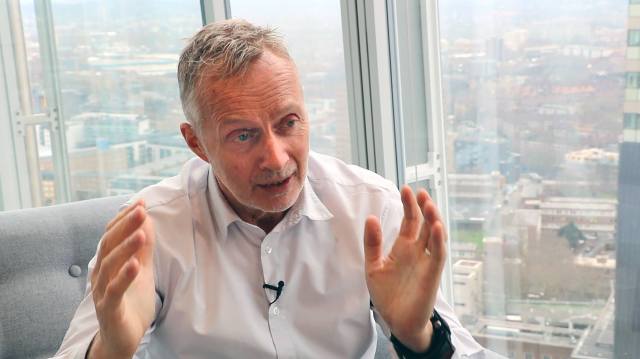Anthony Thomson, Co-founder Metro Bank and Atom Bank
- Around 70% of personal current accounts in Britain are held by the “Big Four” banks (HSBC, Lloyds, Barclays, RBS)
- Only 6% of Britons have changed their day-to-day bank account in the past three years, 9% have switched their savings account and 10% their cash ISA
- 60% of British adults have been with their current account provider for at least a decade
The retail banking market in Britain is highly concentrated, with a Competition and Markets Authority investigation concluding in 2016 that market features, including low levels of customer engagement and incumbency advantages, were leading to “adverse effects on competition”. And a lack of competition is bad news for consumers.
The good news is that the UK’s financial regulators have acted to lower barriers to entry, and a (small) flurry of challenger banks have been established in the past few years. But while the choice in retail banking is increasing, consumers don’t seem to be exercising that choice.
I asked Anthony Thomson – co-founder of the first British app-based bank Atom, and until January its Chairman – why this was the case. Why aren’t consumers switching? Why isn’t competition working? Competition, he said, only really delivers added value if it drives differentiation, and we’re only just seeing that happen (Atom, for example, only opened to all customers in 2016). It’s not, contrary to popular opinion, that switching is seen as too much hassle, it’s that consumers simply don’t see the point. Banks aren’t yet giving customers a compelling enough reason to switch.
Take gyms. The market offers consumers a genuinely diverse choice. I can pay high membership fees and get all sorts of benefits – from the latest fitness classes to luxury shower products – or I can pay comparatively very little and get the basics, no bells and whistles. As for the banks, while traditional ones have tried to entice customers with “rewards” – £100 if you switch, 2% cashback on utility bills, £125 high street gift card – when you look behind the offer, it’s all much of a muchness. The equivalent of putting a glossy front-end on a creaking legacy system.
The corporate culture that puts profit above everything else is partly to blame for the failure of the traditional banks to really compete, according to Thomson:
“The great malaise in UK Plc today in general and in banks in particular is they think they exist to make money, they’ve lost sight of the customer.”
Which isn’t to say that businesses shouldn’t make money; but companies that are more interested in chasing quarterly earnings targets than increasing customer satisfaction are unlikely to invest in innovative, customer-centric products.
This is where the new generation of British challenger banks come in. Entirely-app based ones, such as Atom, Monzo and Starling, are truly disruptive. No bricks and mortar, no call centres, none of the baggage of a traditional bank. With significantly lower overheads, app-based banks can offer better rates for customers, and in an increasingly digital world, a more hassle-free experience.
But it’s still early days, which helps explain why the challengers (or ‘neobanks’) aren’t yet threatening the market share of traditional banks. Atom doesn’t offer a current account (only savings and mortgages) and Monzo’s current account is not open to all customers. These 100% digital banks are differentiated, but they don’t have scale. And achieving scale requires capital. As Thomson explains, the greatest barrier to greater diversification in retail banking is not obtaining a banking licence but securing that capital. Investors willing to put up risk capital at the start, on the basis of a business plan, and not a tried and tested product, make up a small pool.
Yet there are reasons to be hopeful. People’s financial habits are changing: look at online banking, and the growth of new payment platforms and alternative sources of credit. Traditional banks look archaic to generations brought up online. And with the roll out of open banking, as Thomson enthuses, the potential for transformative disruption in the sector is huge – Google ‘bank’ anyone?
Meanwhile, in America, where digital challenger banks aren’t making much progress, a fully integrated model, which links your finances to the rest of your life, and offers hyper-personalised advice, offers and rewards might just spell the end of ‘the bank’ as we know it.
All this data-driven banking obviously won’t wipe away centuries of incumbency advantage overnight, but it will help crack open the current oligopolistic markets – which is why, as Thomson points out, the ‘big boys’ don’t like it.
Oh, and if you fancy setting up your own bank, listen to find out Thomson’s five ‘easy’ steps to doing so…
***
You can also listen to the full interview as a podcast…
https://soundcloud.com/user-970100804/meet-anthony-thomson-the-man-who-broke-the-bank/s-We7YO









Join the discussion
Join like minded readers that support our journalism by becoming a paid subscriber
To join the discussion in the comments, become a paid subscriber.
Join like minded readers that support our journalism, read unlimited articles and enjoy other subscriber-only benefits.
Subscribe